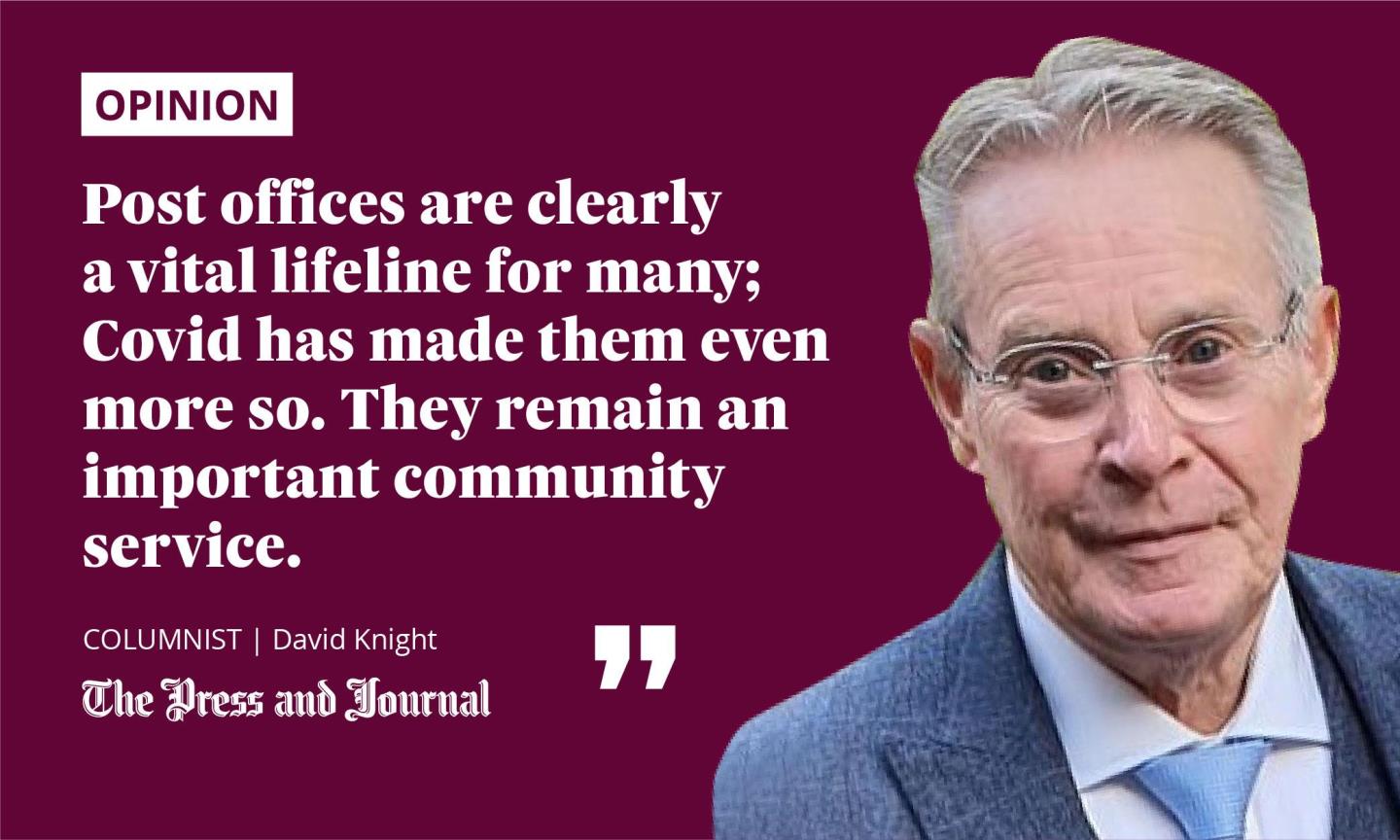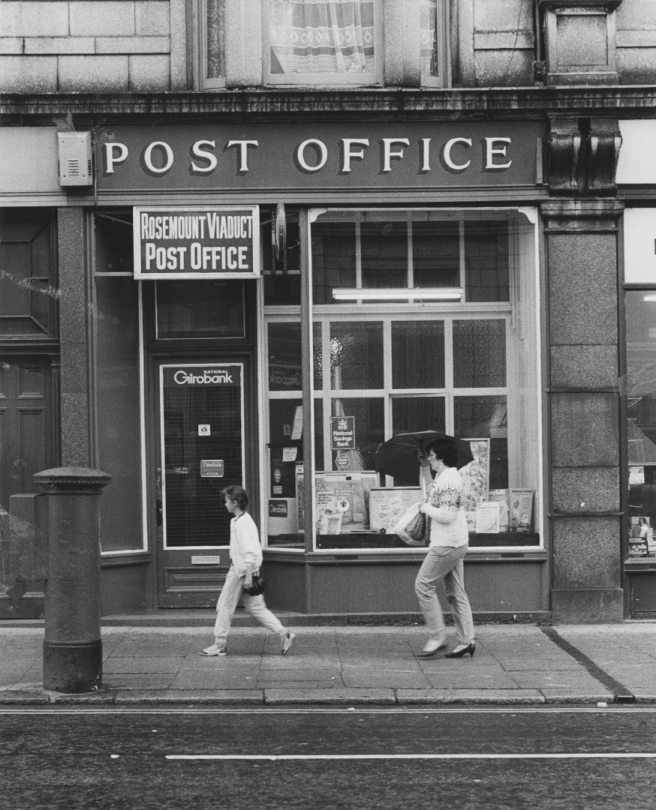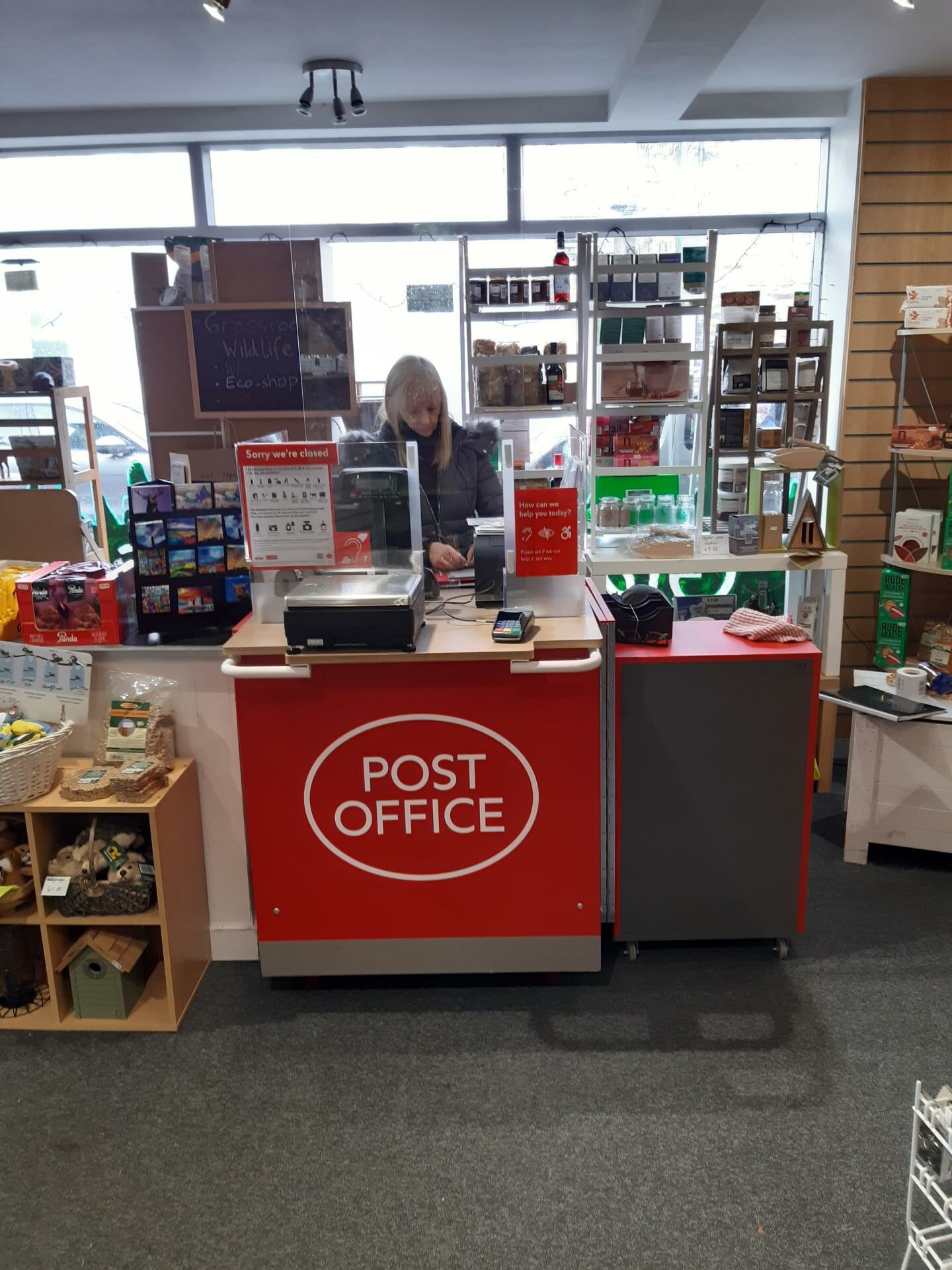I feel awkward when Post Office counter staff ask me what is in the small brown parcels I slide across to them on a regular basis.
This is partly because my answer makes me cringe as others are usually in earshot. And, on top of that, I feel as though I look guilty, like a smuggler at a scary customs post.
But this is an Aberdeen post office and there is no valid reason for fearing my mysterious consignments might be seized as contraband because staff are always friendly and helpful.

There is even a wall poster behind them apologising to parcel senders for asking what is in packages, and listing prohibited contents. A previous poster telling customers not to wear masks – an obvious warning to would-be robbers – disappeared quickly when Covid threatened to burst through the door unless face masks were worn.
My answer about the parcels is always the same: “I am sending cigarettes to my 90-year-old mother-in-law.”
Feeling like a fugitive
As the words rise up into the air like a wisp of smoke, I feel obliged to explain myself, imagining observers standing behind me looking on aghast.
I feel an urgent need to elaborate as it sounds embarrassing when I say it out loud; an onlooker in the post office might feel a need to intervene and challenge me from a moral point of view.
It took 30 years to finally come to my senses and pack up smoking – in shock and fear, after visiting a lung cancer ward at Aberdeen Royal Infirmary
For a start, on the grounds of my apparent dubious practice of sending the possibly lethal items to someone. And, second, because she is a vulnerable old woman who might not want them in the first place.
So, I always have my defence ready. “She’s housebound and lives alone, 450 miles away – she keeps running out and asking for more, you see.
“And she’s convinced she’ll conk out if she stops smoking.”
It’s true; we can’t convince her otherwise. And who am I to object if someone just a decade away from centurion status says smoking makes her happy?
It reminded me of the days when I was one of two “lads” in a warehouse at a tool supply firm.
I was 16, the other “lad” was 82. We must have looked like an odd couple.
We stood about in white coats and smoked like troopers all day. He was another one who swore: “Smoking never did me any harm.”
I know what you’re thinking: this flies in the face of everything we now know about smoking and associated death rates. It took 30 years to finally come to my senses and pack up – in shock and fear, after visiting a lung cancer ward at Aberdeen Royal Infirmary on a journalistic assignment.
Post offices are a lifeline
It’s funny how your mind becomes a sorting office for random thoughts in a postal queue.
By the way, we also send other favourite little things to my mother-in-law, like chocolates and peanuts, in case you were wondering.
Presumably others in the queue were performing similar emotional family duties; surely they couldn’t all be posting return parcels back to online traders?
During the pandemic, and especially over Christmas, there was plenty of time to think, as queues stretched outside from my local post office. It seemed more popular than ever but, as I dispatch my regular cigarette parcels, why do some post offices appear to be going up in smoke?
They are clearly a vital lifeline for many, like my mother-in-law; Covid has made them even more so. They remain an important community service.
Our emotional connection to sending letters isn’t waning
The Spar convenience shop chain attracted criticism recently for planning post office closures in its stores across Scotland. Another one was earmarked for the axe in Aberdeen this month.
I read comments in a news report from a Spar trade show that store managers were glad to be rid of the post offices, as they were more trouble than they were worth. Which makes me wonder if this business marriage was doomed before it started.
And it’s not that there’s anything wrong with post offices themselves, but perhaps they are mismatched with some of the business platforms where they are placed. Postal services should not compete with selling baked beans.
It’s hard to believe the Post Office’s origins go back centuries to Oliver Cromwell, who monopolised early postage services. But a special connection with the public endures.
A few years back, there was a television drama series called Sorted, about the everyday lives of postmen. One of the writers conceded the stories were not “life or death”, but there was an emotional connection with ordinary people because they reflected their own lives.
I’d go along with that.
David Knight is the long-serving former deputy editor of The Press and Journal









